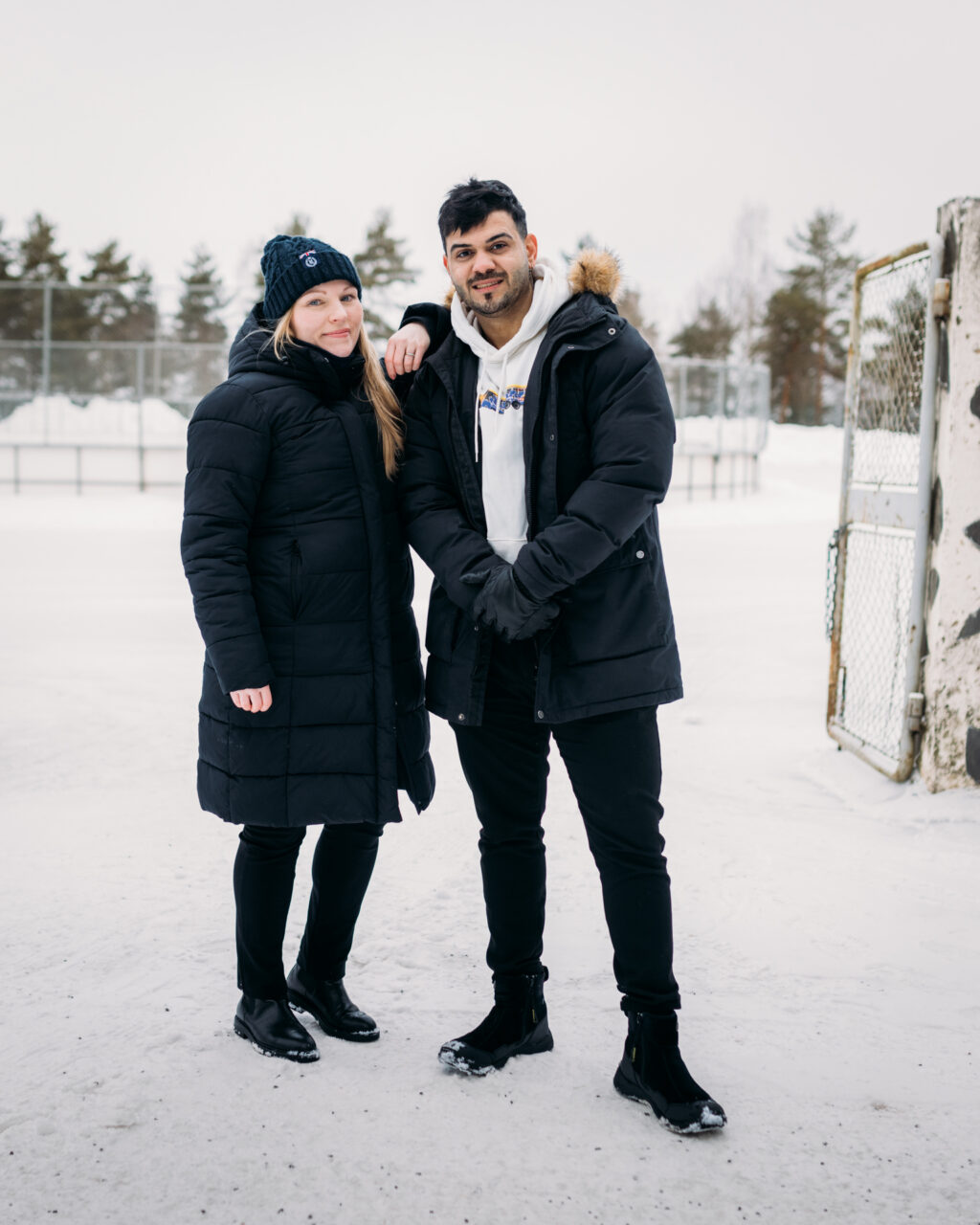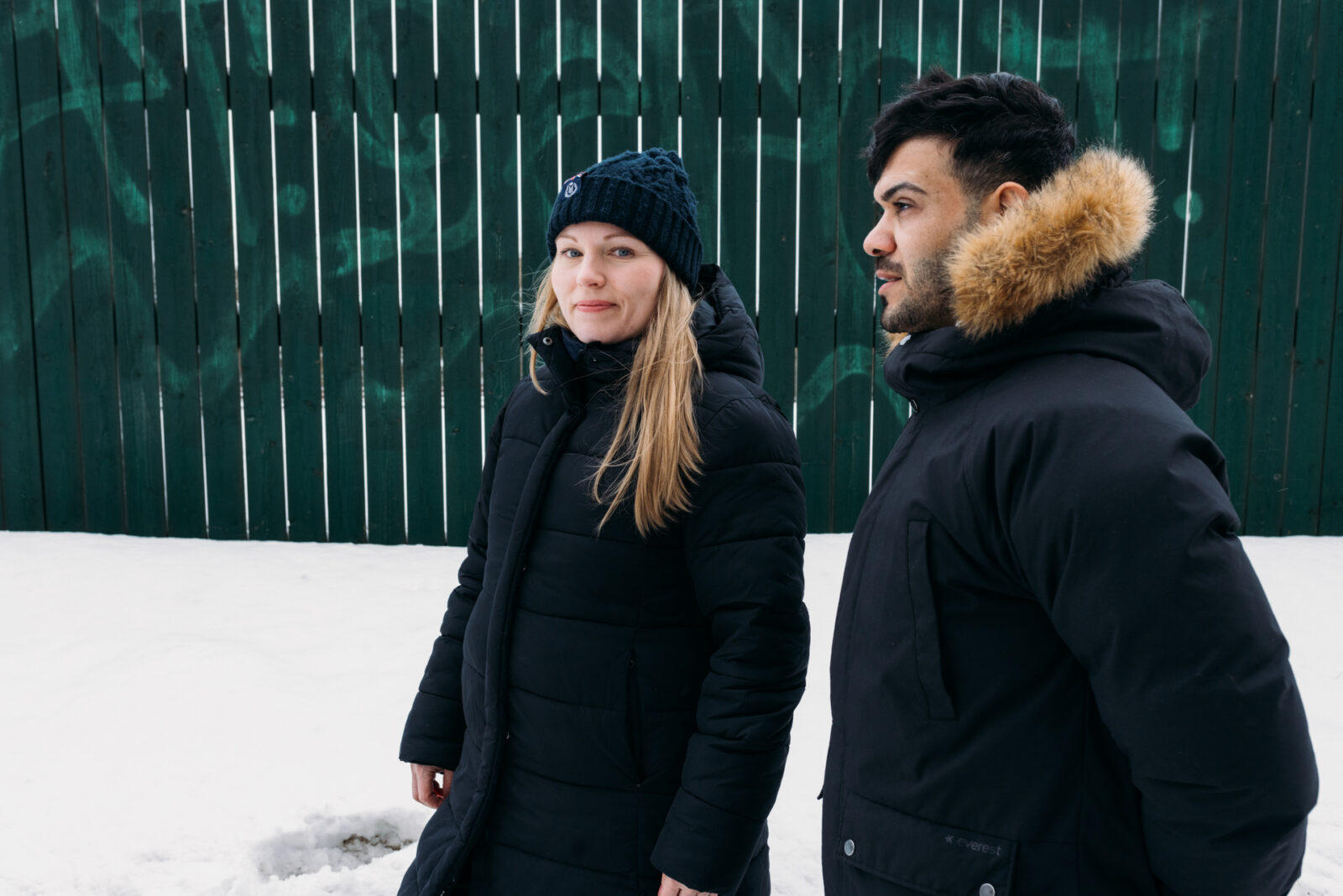School mediators Sanna Heikkinen and Salwan Ghazi have been working in the city’s primary and lower secondary schools since the start of the autumn term in 2023. The mediators’ role includes listening to pupils, students and the school’s employees who have been or may be involved in conflict situations.
The goal is to prevent and resolve cases of bullying, violence, gangs and other negative phenomena involving children or young people. Disputes between adults and matters that have been reported as crimes are not handled by school mediators.
The development project, which is supported by the Ministry of Education, will run until the end of the year. The aim is that before this, the activities will be a part of day-to-day work at schools. The project will develop the cooperation capabilities of primary education with police youth work and youth, social and health care services already collaborating with police youth work. Organisations carrying out street social work and special youth work by the church are also included, as disruptive and criminal behaviour, such as drug use, can be seen both at schools and outside school.
Fears of an immigrant remain in memory
The multi-professional nature of the work is evident in the backgrounds of the two mediators, Heikkinen and Ghaz. Heikkinen has worked at the mediation office for the Häme region as a mediation coordinator and volunteer in criminal and civil cases and in the mediation of intimate partner violence. She also has studies in health care, financial law and management.
Ghazi has previously worked in youth services and as an Arabic interpreter. He has attended training organised by the Finnish Refugee Council and completed a course on restorative mediation methods. Ghazi arrived in Finland as a refugee eight years ago, and the challenges and fears faced by immigrants are still fresh in his memory.
– We complement each other because I have strong expertise in mediation and Salwan knows a lot of young people, especially immigrant youth, and can reach out to them more effectively due to his background, says Heikkinen.
– The most important part of this job is the experience of challenging situations faced by young people, including immigrant youth. I have experiences from many such situations, because I came to Finland to the reception centre in Hennala without speaking the language or knowing anything about Finnish society, says Ghazi.
Timely intervention is important
Despite the difficulties, Ghazi has been able to learn the Finnish language and find education and several jobs. Still, getting to know Finnish people has been difficult, and he felt rejected especially when he had just arrived in the country. That feeling could have turned into anger or indifference towards society’s rules, as is the case for some people.
Immigrant youth are not the only ones who behave disruptively and form gangs. However, due to their or their parents’ lack of language and cultural knowledge, they have a greater risk of getting into trouble. To mitigate this, Lahti also has three cultural interpreters working in the city’s schools. Two of them speak Arabic and one Kurdish. There are also Russian, Turkish and Ukrainian instructors working in schools.

– It is important that the school world recognises what it is means be an immigrant in Finland. Many parents are afraid of the police due to their past experiences or believe that child welfare services will take away their child. That’s why they don’t dare intervene in the behaviour of children and teenagers, and some immigrant youth take advantage of this hesitation, says Ghazi.
Many conflicts start with small misunderstandings and bickering, so it’s important to address these in time. The project will provide school employees with training that helps reinforce a restorative approach to work, including the ability to listen, meet people, repair relationships between people and strengthen social skills.
– I believe that strengthening the emotional skills of young people is more important than ever. We try to bring up how this affects everyone involved and how words and actions have consequences. We also explain the responsibility and consequences that we must accept for our actions, Heikkinen says.
Learning from conflicts
One important goal is to make it clear what mediation is and how it differs from other forms of work used in schools. The main principles of mediation are that the work is impartial, confidential and free of charge.
– We come from outside the school, listen to everyone involved and offer a different perspective. Instead of blaming young people, we want to convey that they matter and should treat the situation as a learning experience. We also follow up and meet with young people again after a conflict and can refer them to other social workers and the authorities, Heikkinen sums up.
Text: Ina Ruokolainen
Photos: Lassi Häkkinen
Full story published in the Kaupunkilainen magazine number 1/24.
